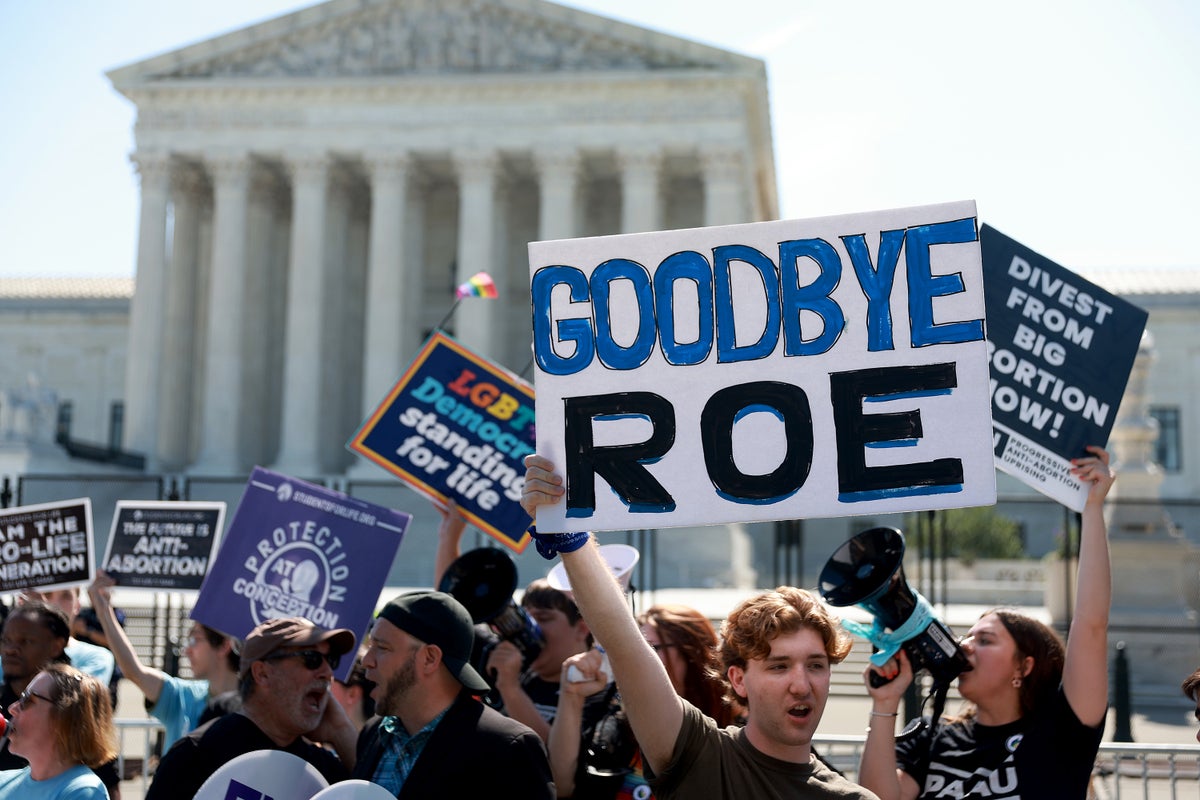
A sweeping proposal from the National Right to Life Committee – the nation’s largest anti-abortion group – intends to serve as model legislation for states to adopt as the US Supreme Court prepares to rule in a case that could upend abortion protections across the country.
The proposed legislation would not only criminalise abortion providers but people who help connect patients to care over the phone or on the internet, websites that offer abortion aid, or abortion fund groups that help pay for patients’ travel costs and hotel stays.
National Right to Life suggests charging people or groups that “aid and abet” an abortion with conspiracy under the same statutes that target organised crime.
The group is among a powerful bloc of anti-abortion lobbyists, conservative Christian organisations and legal groups in concert with a so-called “pro-life” movement that has fortified the political and cultural opposition to abortion rights in the decades after the 1973 ruling Roe v Wade.
That movement has gained outsized influence within state legislatures. Anti-abortion groups and their legislative envoys have helped draft other model legislation – like the Missisippi law banning abortion at 15 weeks of pregnancy that is now at the centre of the Supreme Court – in an effort to draw legal challenges from abortion rights and civil rights groups that would bring those arguments in front of the nation’s highest court.
The latest model legislation from National Right to Life would “ensure that all parties participating in an illegal abortion are subject to enforcement” – including anyone “giving instructions over the telephone, the internet, or any other medium” or “hosting or maintaining a website, or providing internet service, that encourages or facilitates efforts to obtain an illegal abortion” or “offering or providing illegal ‘abortion doula’ services” and “providing referrals to an illegal abortion provider.”
It also would allow state attorneys general to take on abortion cases when local prosecutors refuse to enforce anti-abortion laws.
“As we realized in our nation’s efforts to combat organised crime, prosecuting individual members of an organised criminal enterprise has limited effectiveness,” attorneys for the group wrote in their proposal.
“The whole criminal enterprise needs to be dealt with to effectively prevent criminal activity, so RICO-style laws” – referencing the federal Racketeer Influenced and Corrupt Organizations Act – “were adopted to provide effective remedies against the whole criminal enterprise,” attorneys said.
“Unfortunately, much of the abortion industry is likely to reemerge and perform illegal abortions, sheltered by radical Democrat prosecutors and other local Democrat officials,” they wrote. “This illegal abortion industry will be well-funded and well-organised, operating as an illegal abortion enterprise that will need to be stopped to prevent illegal abortions from occurring.”
The group’s model legislation comes as Democratic members of Congress propose bills to block intimate data collected by tech companies – including, more broadly, location data – that could be used in criminal subpoenas in states that want to criminalise abortion care.
A bill from California Congresswoman Sara Jacobs would strictly limit the sexual health data that companies can collect, retain and disclose, while a proposal from Senator Elizabeth Warren would ban data brokers from selling or transferring location and health data
Legal analysts and abortion rights advocates have warned that the availability of location data and personal health data – like Google search results and period-tracking apps – could be exploited by anti-abortion activists and law enforcement.
Several district attorneys told The Independent that they will not prosecute people seeking abortion care or who provide abortions, should state laws criminalising care go into effect without Roe, let alone issue subpoenas for sensitive data in anti-abortion cases.
“It doesn’t make sense to spend our time and energy thinking about how one might do that,” Travis County District Attorney Jose Garza told The Independent.
“But I think those fears and concerns are incredibly legitimate,” he said. “I think the implications for law enforcement, using their authority, in that way would deeply undermine core democratic principles.”







